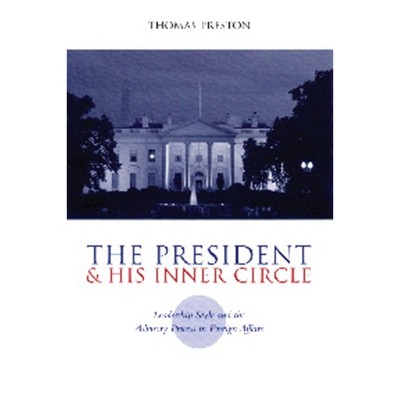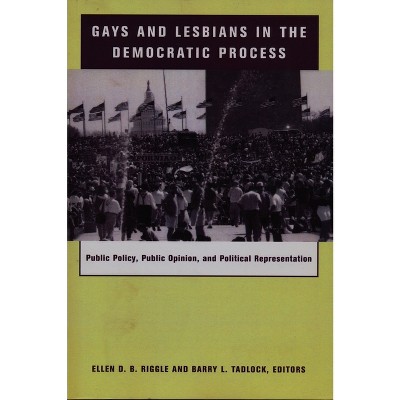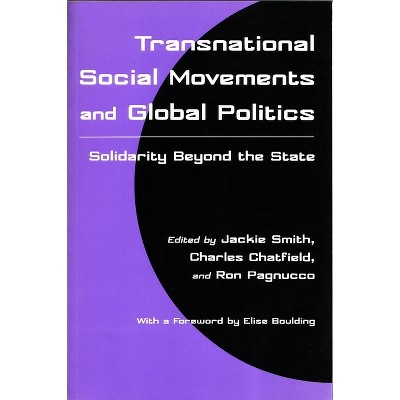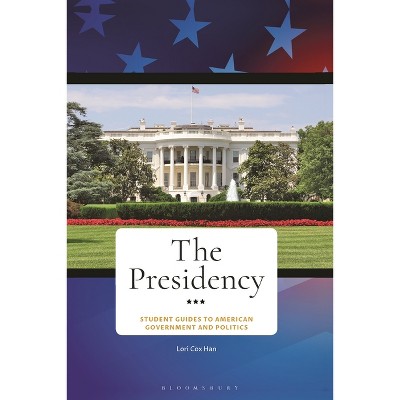The Presidency and the Politics of Racial Inequality - (Power, Conflict, and Democracy: American Politics Into the 2) by Russell Riley (Paperback)

About this item
Highlights
- From the abolition of slavery to the civil rights movement one hundred years later, one of the primary characteristics of America's development as a nation has been the steady struggle for and expansion of the horizons of citizenship.
- About the Author: Russell L. Riley holds a Ph.D. in American government from the University of Virginia, and has taught on the faculties of Georgetown University and the University of Pennsylvania.
- 400 Pages
- History, United States
- Series Name: Power, Conflict, and Democracy: American Politics Into the 2
Description
About the Book
Focusing on the most explosive and enduring of equality movements--the struggle for social and economic parity by African Americans--Riley argues that the president's unwritten mandate as the designated protector of domestic social order is to suppress or moderate major social change. Only in extreme circumstances have presidents become advocates of serious reform.
Book Synopsis
From the abolition of slavery to the civil rights movement one hundred years later, one of the primary characteristics of America's development as a nation has been the steady struggle for and expansion of the horizons of citizenship. Pivotal in any equal rights movement is the response of the White House: how the president addresses any such movement profoundly affects its chances for success. Russell L. Riley examines the logic of presidential behavior with regard to equality movements. Focusing on the most explosive and enduring of such movements--the struggle for social and economic parity by African Americans--Riley argues that the president's unwritten mandate as the designated protector of domestic social order is to suppress or moderate major social change.
Consequently, only in extreme circumstances have presidents become advocates of serious reform. The Presidency and the Politics of Racial Inequality goes beyond the triad of Lincoln, Kennedy, and Johnson with discussions of F.D.R., Truman, and Eisenhower to see how these presidents dealt with situations that forced them into the fray. Riley questions the positive role played by some presidents--and contends that their failure to suppress racial unrest has not been adequately discussed.As Riley convincingly demonstrates, American political culture made it unlikely that any president would invest executive power in a deeply controversial enterprise. His study goes far toward explaining why significant change has been slow to take hold, even in one of the most open democratic systems in the world.From the Back Cover
From the abolition of slavery to the civil rights movement, America's development as a nation has been characterized in part by the struggle for racial equality. Pivotal in this struggle has been the response of the White House: how the president addresses any social movement profoundly affects its chances for advancement. In this timely and innovative study of one hundred and thirty years of presidential history, Russell L. Riley presents a new viewpoint from which to examine presidential behavior in relation to African-American rights. Riley's findings about the fundamental character of the presidency illuminate why significant change has been so slow to take hold, even in a country that sees itself as one of the most democratic in the world.Review Quotes
Challenges the received wisdom that heroic executives have advanced racial justice. . . . From Andrew Jackson to Lyndon Johnson, Russell Riley finds that presidents -even those credited with championing racial equality -often feel compelled to restrain, and at time oppress, crusaders for political and social reform.
About the Author
Russell L. Riley holds a Ph.D. in American government from the University of Virginia, and has taught on the faculties of Georgetown University and the University of Pennsylvania. He is currently program director for the Salzburg Seminar in American Studies, Salzburg, Austria.










